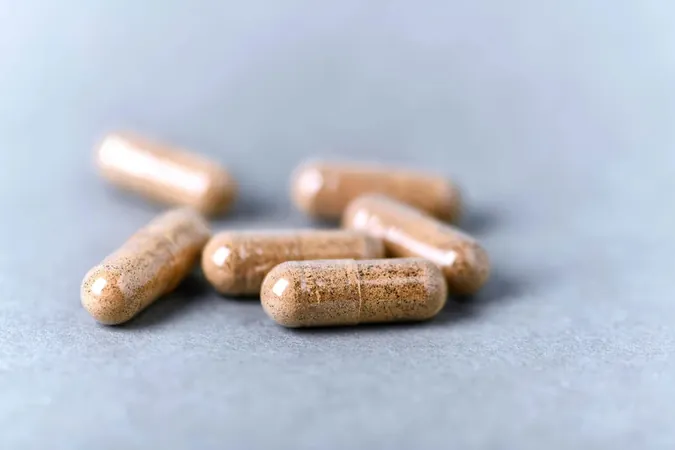
Is Ashwagandha the Secret to Better Sleep and Less Stress? Here’s What Science Says!
2024-09-27
Author: Wei Ling
What Exactly is Ashwagandha?
Ashwagandha, scientifically known as Withania somnifera, is a resilient evergreen shrub native to dry regions throughout Asia, Africa, and the Middle East. Known also as Indian ginseng or winter cherry, this herb boasts a rich history, dating back to its medicinal use in Ayurvedic medicine more than 6,000 years ago. The roots of the plant are typically dried and ground into a powder which can be consumed in various forms including capsules, gummies, and liquid extracts.
The Benefits: What You Need to Know
Ashwagandha is considered an "adaptogen," a natural substance that helps the body manage stress and adapt to difficult situations. The herb is packed with bioactive compounds that exhibit both anti-inflammatory and antioxidant properties, making it a valuable asset in promoting overall wellness.
Recent studies have explored ashwagandha's potential benefits, including:
- Stress and Anxiety Relief: Extensive research indicates that ashwagandha may lower cortisol levels, a hormone released in response to stress. Clinical trials suggest a significant reduction in anxiety levels among users after taking the herb regularly for several weeks.
- Improved Sleep Quality: While ashwagandha is not a sedative, studies hint at its ability to improve sleep quality and help regulate the sleep-wake cycle over time. For individuals battling insomnia, it might provide some relief.
- Cognitive Enhancement: Preliminary evidence suggests that ashwagandha may enhance memory and cognitive functions, potentially as a result of its ability to reduce stress, which can cloud thinking.
- Athletic Performance: Ashwagandha appears to boost testosterone levels and may enhance muscle mass and performance, according to various studies.
How to Take Ashwagandha Safely
There’s no universal dosage for ashwagandha as it can vary based on individual needs. However, most studies utilize doses ranging from 300 mg to 1,000 mg daily. It's always best to start with a lower dose to gauge your body’s response before gradually increasing.
Most people may begin to notice effects after two to three weeks of daily use. It is generally safe for short-term use, but experts recommend cycling your intake—using it for three months on and then taking a break for a few weeks.
Who Should Avoid Ashwagandha?
Despite its many benefits, ashwagandha is not suitable for everyone. Pregnant individuals should steer clear, as it can lead to pregnancy complications. Those with autoimmune disorders, thyroid disease, or hormone-sensitive cancers should also avoid it due to potential negative interactions. It is crucial for anyone considering ashwagandha to consult with a healthcare provider, especially if other medications are being taken.
Possible Side Effects: What to Watch For
While typically well-tolerated, some users may experience side effects such as gastrointestinal upset, nausea, diarrhea, or vomiting. If severe side effects occur, discontinue use and consult a physician immediately.
Final Thoughts: Quality Matters
As with any supplement, the quality of the product is paramount. Look for ashwagandha supplements that have been independently tested by reputable organizations to ensure safety and efficacy. And remember, while ashwagandha can complement a healthy lifestyle, it is not a substitute for proper nutrition, hydration, and exercise.
In conclusion, while ashwagandha shows promise in managing stress and enhancing overall health, more research is needed to fully understand its effects. If you’re considering adding this herbal remedy to your routine, a chat with your healthcare provider is a great first step.
Will ashwagandha be your next go-to supplement? The science points to many benefits, but individual experiences may vary!


 Brasil (PT)
Brasil (PT)
 Canada (EN)
Canada (EN)
 Chile (ES)
Chile (ES)
 España (ES)
España (ES)
 France (FR)
France (FR)
 Hong Kong (EN)
Hong Kong (EN)
 Italia (IT)
Italia (IT)
 日本 (JA)
日本 (JA)
 Magyarország (HU)
Magyarország (HU)
 Norge (NO)
Norge (NO)
 Polska (PL)
Polska (PL)
 Schweiz (DE)
Schweiz (DE)
 Singapore (EN)
Singapore (EN)
 Sverige (SV)
Sverige (SV)
 Suomi (FI)
Suomi (FI)
 Türkiye (TR)
Türkiye (TR)